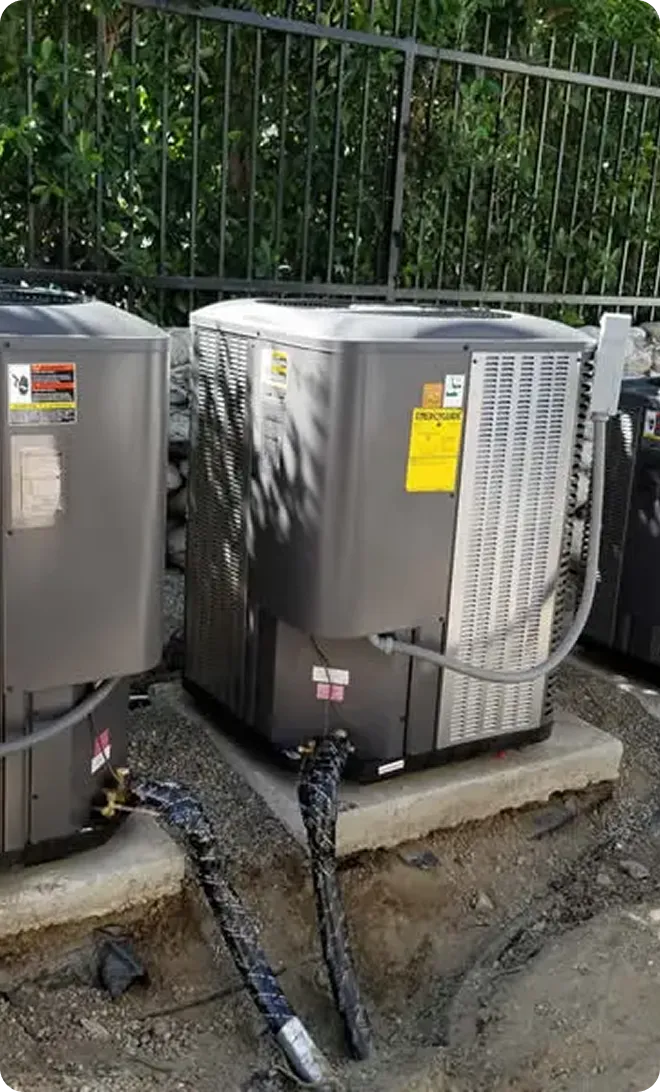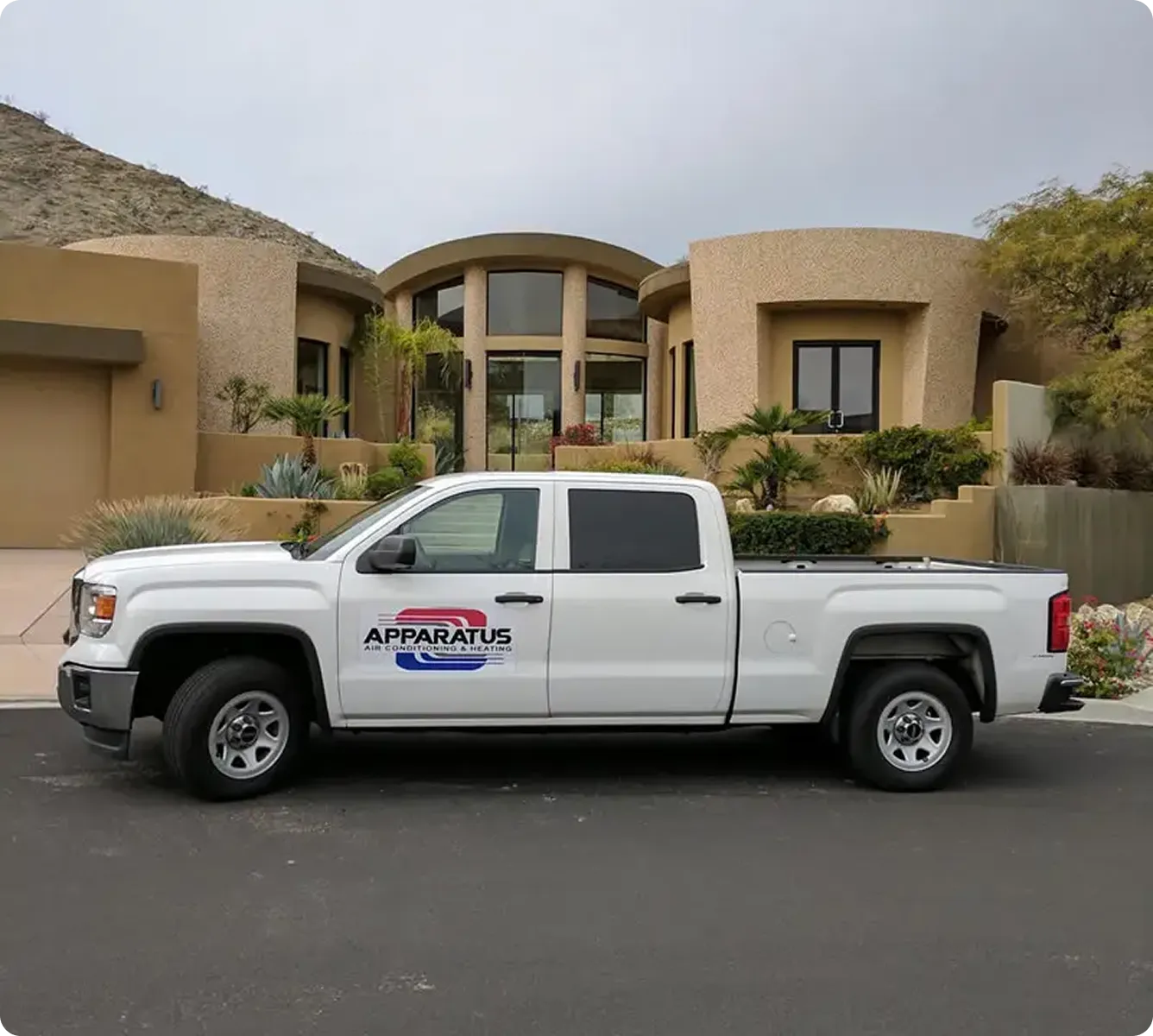
Water Heater Replacement in Palm Springs, CA
Water Heater Replacement in Palm Springs, CA
Choosing the right time and the right system for a water heater replacement in Palm Springs, CA matters more than ever. Hot summers, mineral-rich desert water, and homes with varied occupancy patterns (seasonal residents, rentals, multi-bath households) create unique demands on water heating systems.
-min.webp)
Why replace your water heater now? Common water heater issues in Palm Springs
Homes in the Coachella Valley typically face conditions that accelerate water heater wear:
- Age and repeated repairs: Most tank heaters lose efficiency and reliability after 8–12 years. Frequent breakdowns or rising repair costs usually signal replacement is more economical.
- Sediment and mineral buildup: Desert and well-supplied water often carries minerals that settle in tanks, reducing capacity and heating efficiency.
- Inconsistent hot water or long recovery times: This can indicate element failure, sediment insulation, or undersized units for modern household demand.
- Leaks, rust, or tank corrosion: A leaking tank cannot be reliably repaired and presents flood risk.
- Inefficient performance: Older units use more energy and may not meet current efficiency standards.
If you notice fluctuating temperatures, odd noises (popping from sediment), or water discoloration, replacement is a practical, long-term solution.
Tank vs tankless vs heat pump: choosing the right type for Palm Springs homes
Selecting the right water heater depends on household size, usage patterns, fuel availability, space, and efficiency goals.
- Traditional tank water heaters (gas or electric)
- Pros: Lower upfront complexity, familiar technology, reliable for high simultaneous hot water demand.
- Cons: Standby heat loss, larger footprint, more vulnerable to sediment in hard water areas.
- Tankless (on-demand) water heaters
- Pros: Continuous hot water, smaller footprint, lower standby losses, longer service life when properly maintained.
- Cons: Higher upfront cost, performance affected by flow rate and simultaneous use, may require upgrades to gas line or electrical supply.
- Heat pump (hybrid) water heaters
- Pros: Best energy efficiency for electric systems, large operational savings in many climates, good option where gas is not available.
- Cons: Require adequate space and ventilation, performance can vary with ambient temperature.
In Palm Springs, tankless systems are attractive for energy-conscious homeowners or properties with intermittent occupancy. Heat pump water heaters can be very efficient here due to generally mild winters and warm ambient air, but they need proper installation location. For families or homes with several simultaneous showers and appliances, a larger tank or a hybrid solution (tank + tankless boost) may be more practical.
Sizing guidance and capacity recommendations
Proper sizing ensures comfort and efficiency:
- Small households (1–2 people): smaller tanks or point-of-use/tankless systems can suffice.
- Medium households (3–4 people): mid-sized tanks or whole-home tankless units sized by peak gallons-per-minute (GPM).
- Large households or high simultaneous use: larger tanks (or dual tankless units) to handle overlapping demand.
We evaluate peak hour demand and appliances to recommend a system sized for your actual usage rather than guesswork. In desert climates, incoming water temperature may be higher than in northern regions, which can slightly reduce heating demand—this is factored into sizing.
Replacement process and typical timeline
A professional water heater replacement follows clear steps to minimize disruption and ensure code compliance:
- On-site evaluation: Inspect existing equipment, plumbing, fuel type, venting, and access. Check for corrosion, leak points, and sediment issues.
- Recommendation & selection: Choose type, capacity, and efficiency level that fit household needs and local conditions.
- Permit pull & scheduling: Obtain required municipal or county permits and schedule installation. Permits and inspections are standard in Palm Springs and Riverside County.
- Removal & disposal: Safely drain and remove the old unit, recycle metals where possible, and handle any hazardous materials in accordance with regulations.
- Installation: Install new unit, update venting or combustion air for gas units, install expansion tank if required, and secure seismic straps per California code.
- Testing & commissioning: Pressure test plumbing, check for leaks, calibrate controls, and verify safe operation.
- Final inspection: Coordinate local inspector sign-off when required.
Most straightforward replacements are completed within a single workday once permits are in place; more complex swaps (fuel conversions, extensive venting, or structural changes) can take longer.
Permits, code compliance and safety considerations
Water heater replacement in Palm Springs must comply with California building and energy codes:
- Permits and inspections are typically required for replacements; this ensures safety and code compliance.
- Seismic anchoring: California codes require seismic strapping or anchoring for water heaters to prevent tipping during earthquakes.
- Energy standards: New units must meet current efficiency standards (Uniform Energy Factor/UEF). Certain high-efficiency technologies may have additional installation requirements.
- Gas venting and combustion air: Proper venting and clearances are essential for gas water heaters to avoid carbon monoxide hazards.
- Disposal and environmental handling: Old units are recycled or disposed of per local regulations to minimize environmental impact.
We evaluate existing conditions and make any recommended upgrades to ensure your system meets local codes and operates safely.
Warranties, maintenance and long-term savings
- Warranties: New units carry manufacturer warranties on tanks or heat exchangers; labor warranties protect installation workmanship. Understand both when choosing your equipment.
- Maintenance: Regular flushing for tank units, annual inspections, and descaling in hard-water areas extend life and preserve efficiency. Tankless units require periodic descaling depending on water hardness.
- Long-term savings: Upgrading to a high-efficiency unit reduces operating costs and improves reliability. Heat pump and high-efficiency tankless options often deliver the largest energy savings over time in the right application.
- Rebates and financing: Federal, state, and utility incentives may be available for high-efficiency or electric heat pump water heaters. Financing options and energy-efficient rebates can improve cash flow and reduce payback periods—check with local utilities and program administrators for current offerings.
Final considerations for Palm Springs homeowners
Replacing a water heater in Palm Springs is more than swapping equipment—it's about matching technology to local conditions, minimizing future maintenance, and ensuring safety and code compliance. The desert’s mineral-rich water and frequent high temperatures shape which systems perform best. Proper evaluation leads to a solution that delivers reliable hot water today and lower operating costs over the life of the unit.
If your water heater is showing signs of age, inefficiency, or recurring failure, a professionally managed replacement tailored to Palm Springs conditions protects your home from damage and improves daily comfort while aligning with current energy standards and safety codes.

hear what our satisfied
clients have to say









.webp)